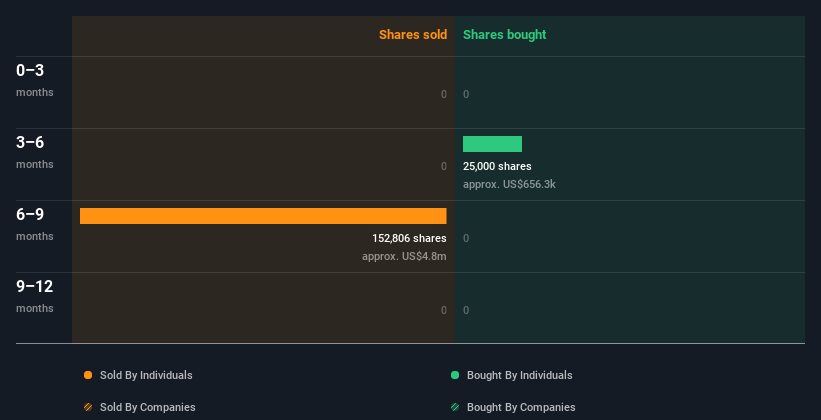Bank of America Insiders Sold US$4.8m Of Shares Suggesting Hesitancy
In the last year, many Bank of America Corporation (NYSE:BAC) insiders sold a substantial stake in the company which may have sparked shareholders' attention. When analyzing insider transactions, it is usually more valuable to know whether insiders are buying versus knowing if they are selling, as the latter sends an ambiguous message. However, when multiple insiders sell stock over a specific duration, shareholders should take notice as that could possibly be a red flag.
While insider transactions are not the most important thing when it comes to long-term investing, we would consider it foolish to ignore insider transactions altogether.
Check out our latest analysis for Bank of America
The Last 12 Months Of Insider Transactions At Bank of America
In the last twelve months, the biggest single sale by an insider was when the President of Regional Banking, Dean Athanasia, sold US$2.4m worth of shares at a price of US$31.49 per share. That means that even when the share price was below the current price of US$35.23, an insider wanted to cash in some shares. As a general rule we consider it to be discouraging when insiders are selling below the current price, because it suggests they were happy with a lower valuation. However, while insider selling is sometimes discouraging, it's only a weak signal. We note that the biggest single sale was only 18% of Dean Athanasia's holding.
In total, Bank of America insiders sold more than they bought over the last year. You can see the insider transactions (by companies and individuals) over the last year depicted in the chart below. By clicking on the graph below, you can see the precise details of each insider transaction!
I will like Bank of America better if I see some big insider buys. While we wait, check out this free list of growing companies with considerable, recent, insider buying.
Does Bank of America Boast High Insider Ownership?
I like to look at how many shares insiders own in a company, to help inform my view of how aligned they are with insiders. I reckon it's a good sign if insiders own a significant number of shares in the company. Bank of America insiders own 0.1% of the company, currently worth about US$385m based on the recent share price. Most shareholders would be happy to see this sort of insider ownership, since it suggests that management incentives are well aligned with other shareholders.
So What Do The Bank of America Insider Transactions Indicate?
It doesn't really mean much that no insider has traded Bank of America shares in the last quarter. While we feel good about high insider ownership of Bank of America, we can't say the same about the selling of shares. If you are like me, you may want to think about whether this company will grow or shrink. Luckily, you can check this free report showing analyst forecasts for its future.
If you would prefer to check out another company -- one with potentially superior financials -- then do not miss this free list of interesting companies, that have HIGH return on equity and low debt.
For the purposes of this article, insiders are those individuals who report their transactions to the relevant regulatory body. We currently account for open market transactions and private dispositions of direct interests only, but not derivative transactions or indirect interests.
Have feedback on this article? Concerned about the content? Get in touch with us directly. Alternatively, email editorial-team (at) simplywallst.com.
This article by Simply Wall St is general in nature. We provide commentary based on historical data and analyst forecasts only using an unbiased methodology and our articles are not intended to be financial advice. It does not constitute a recommendation to buy or sell any stock, and does not take account of your objectives, or your financial situation. We aim to bring you long-term focused analysis driven by fundamental data. Note that our analysis may not factor in the latest price-sensitive company announcements or qualitative material. Simply Wall St has no position in any stocks mentioned.

 Yahoo Finance
Yahoo Finance 
